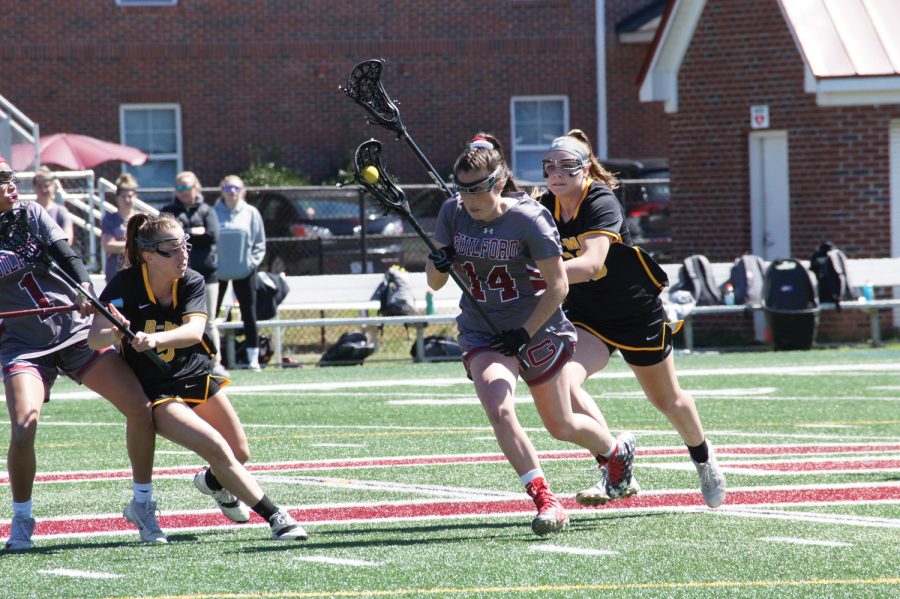Imagine this: you are arrested for a low-level drug crime. You serve a year — maybe several years — in jail. When you finally get out, you find you cannot get a job. You may not be able to get a passport. In many states, if you have a felony charge, you will not be allowed to vote.
This is nothing new. The United States has been using voting rights to disenfranchise people for centuries. In 1787, we decided that slaves were only three-fifths of a person, so while three-fifths of slaves counted toward government representation, they could not vote. Black, landowning men could not vote until 1870. Black and Native American women could not vote until 1965.
Today, it is still happening in the form of felony voting laws.
In North Carolina, people with felonies are allowed to vote after a designated period of time, often the length of their probation or parole. The person must complete a document from the convicting agency in order to vote. Although this is still not a perfect system, it is a step above many states who do not allow felons to vote at all.
And again, there are racial motivations.
“There’s no question that we’ve had a horrible history in voting rights as relates to African-Americans,” Virginia Gov. Terry McAuliffe, who attempted to restore voting rights to felons in his state earlier this year, told The New York Times. “We should remedy it.”
Of the 5.3 million Americans denied their voting rights due to felony convictions, one-third of them are black. This includes 13 percent of all African-American men in the U.S. according to the Huffington Post — about 5.4 million people.
In fact, black and Latinx people make up four out of five drug offenders in state prisons, according to the Poverty and Race Research Action Council.
According to the Drug Policy Alliance, 57 percent of people incarcerated for drug offenses are black and Latinx even though these groups use and sell drugs at the same rates, and often lower rates, as white people.
While felony voting laws are a form of discrimination, it is also a way to keep more conservative Republicans in power, since republican voters are overwhelmingly white. According to the Pew Research Center, 2016 will be the first year the majority of college-educated white people will vote Democrat in over 25 years based on recent polls.
This can have incredibly influential effects. When George Bush won the presidential election in 2000, he won Florida by 537 votes. However, 31 percent of black people in Florida, or just over 400,000 people based on the 2010 census statistics, were not able to vote because of felony voting laws according to the Pew Research Center.
This has kept many Republicans wary of restoring voting rights. In Virginia, for example, many Republicans fear McAuliffe’s motivation for restoring felony voting rights is more about politics than it is about human rights.
“The singular purpose of Terry McAuliffe’s governorship is to elect Hillary Clinton president of the United States,” said Speaker of the Virginia House of Delegates William J. Howell, according to the Washington Post.
McAuliffe denies this and has taken painstaking steps to ensure former felons will be able to vote in Virginia, such as vowing to sign over 13,000 orders to restore their rights to vote.
Aside from drug possession or intent to distribute, felony charges include arson, burglary, escaping from a prison, homicide, larceny, rape, robbery and more. Many fear that violent felons have already demonstrated bad judgement and should not be allowed to vote. However, violent felons more than likely have longer sentences, possibly even life, and would not be able to vote either way.
Regardless, felons are also people, and this, first and foremost, is the reason they should be allowed to vote.
In 1787, black slaves were a tool to give white landowners in the South more political influence when it was declared that they were only three-fifths of a person. Now, felons are not allowed to vote, and the reason remains political influence. It’s time to stop the cycle.











Roger Clegg, Center for Equal Opportunity • Sep 22, 2016 at 8:49 pm
If you aren’t willing to follow the law yourself, then you can’t demand a role in making the law for everyone else, which is what you do when you vote. The right to vote can be restored to felons, but it should be done carefully, on a case-by-case basis after a person has shown that he or she has really turned over a new leaf, not automatically on the day someone walks out of prison. After all, the unfortunate truth is that most people who walk out of prison will be walking back in. Read more about this issue on our website here [ http://www.ceousa.org/voting/voting-news/felon-voting/538-answering-the-challenges-to-felon-disenfranchisement ] and our congressional testimony here: [
http://judiciary.house.gov/_files/hearings/pdf/Clegg100316.pdf ]